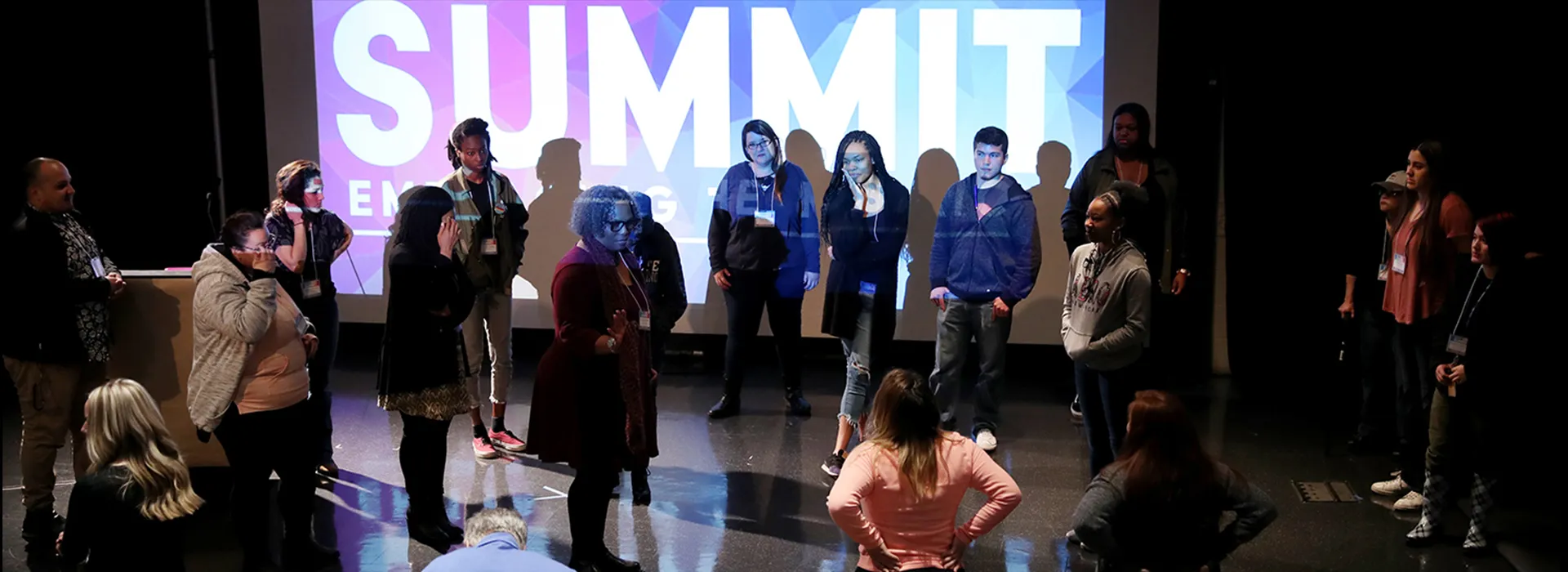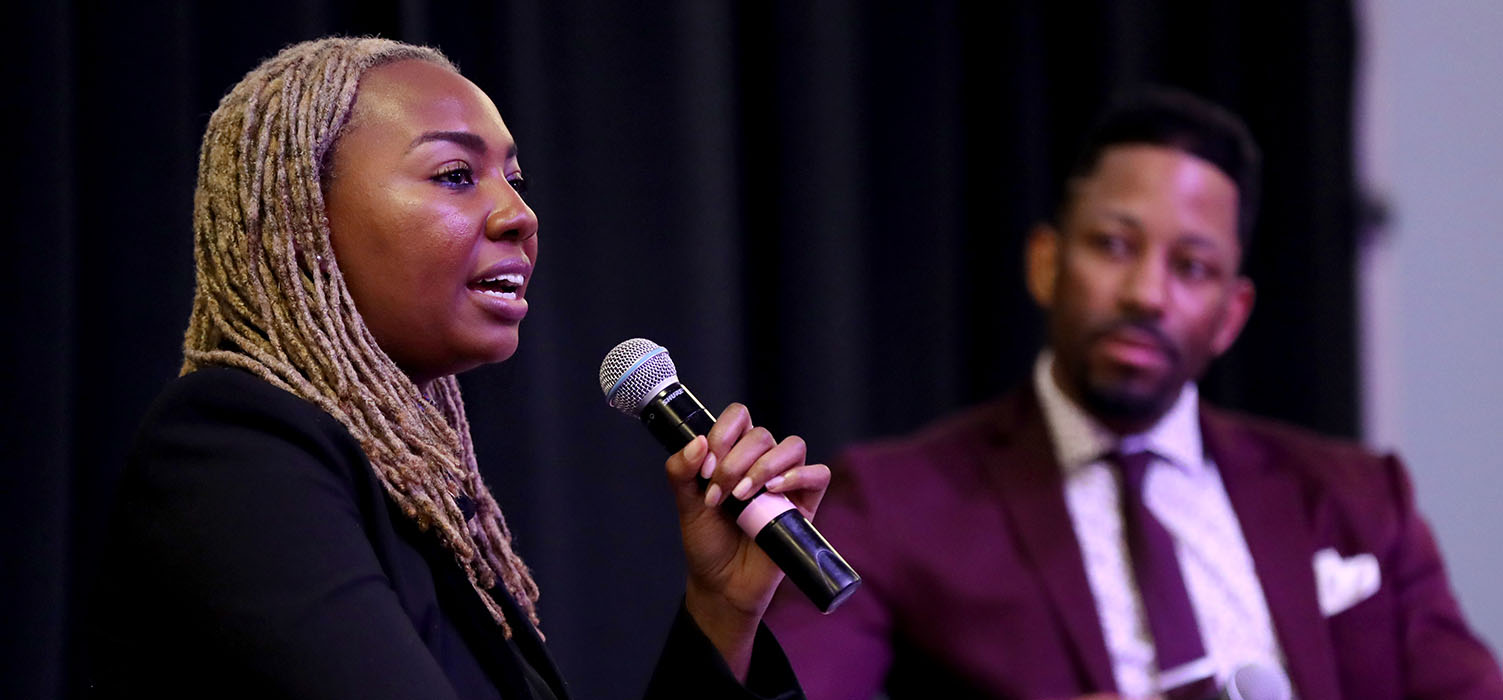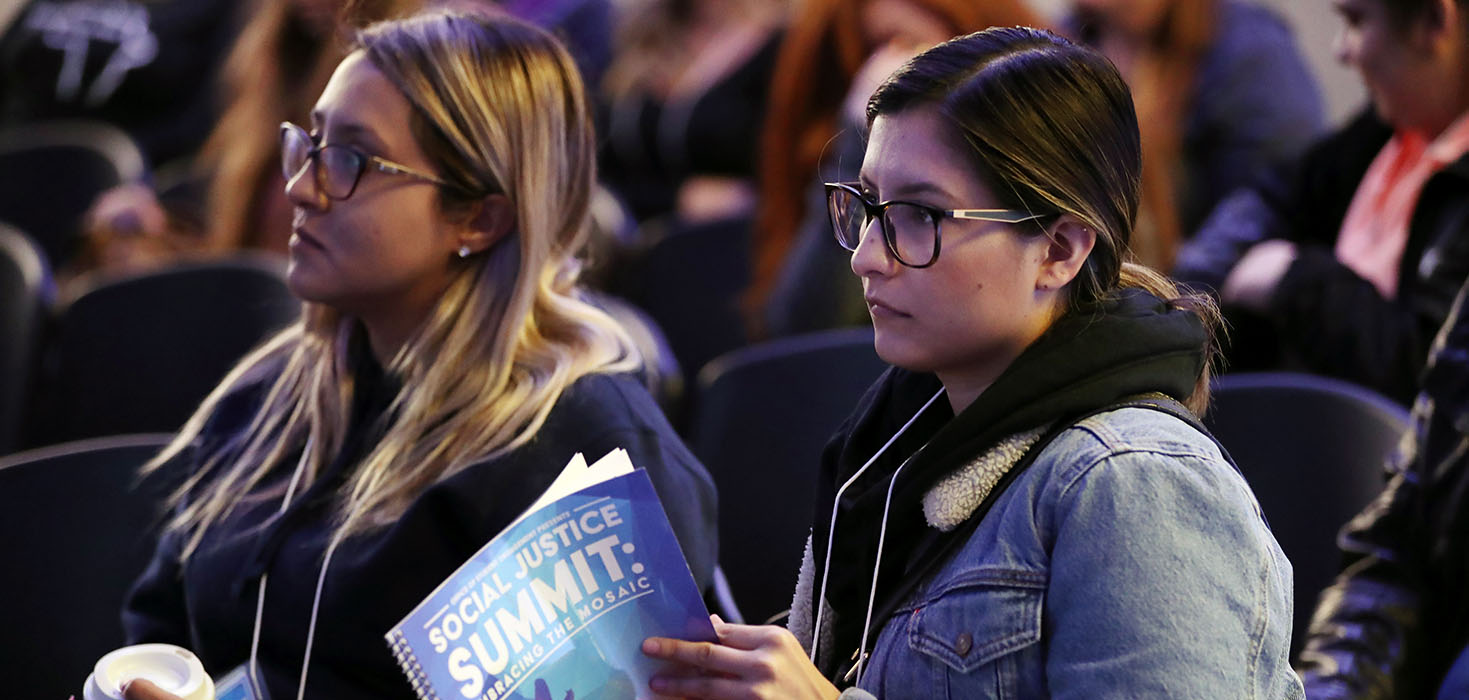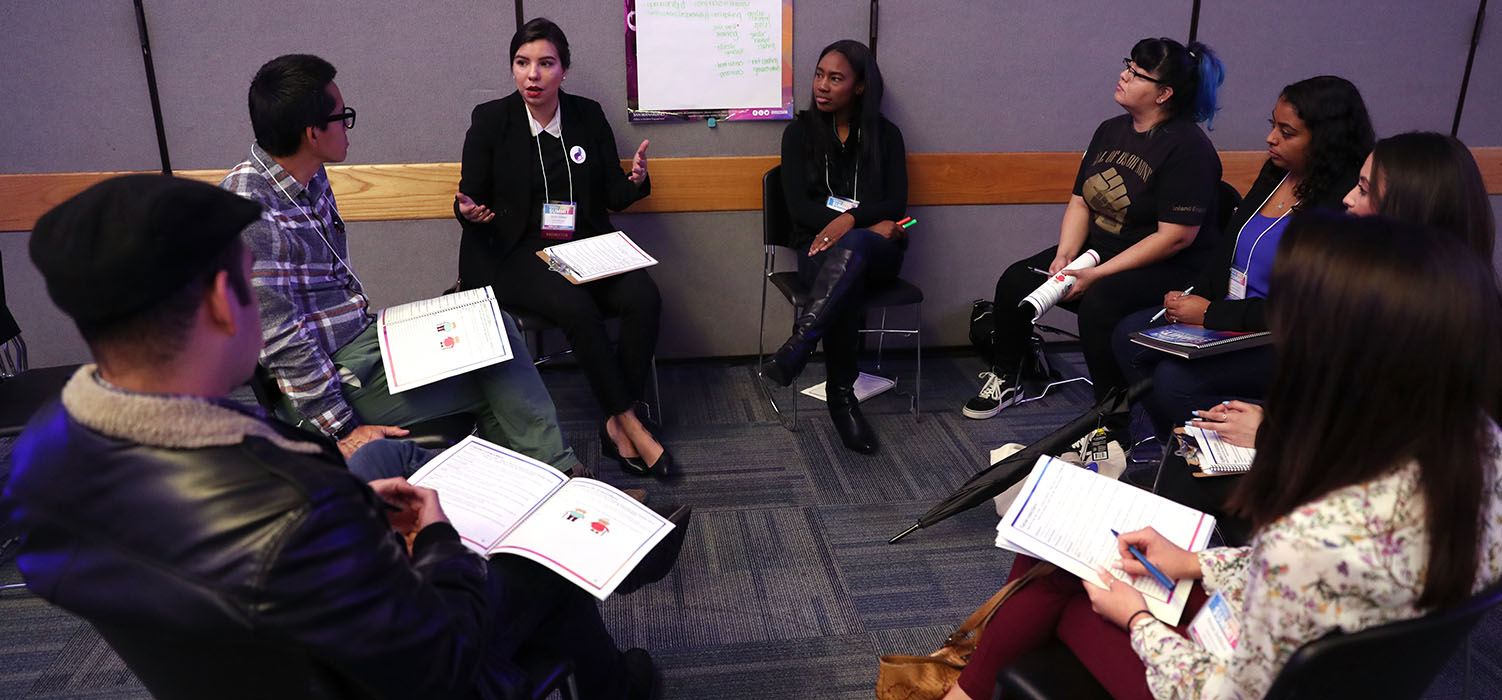Joe Gutierrez Office of Strategic Communication (909) 537-5007 joeg@csusb.edu

Through interactive breakout sessions, engaging group activities and special guest speaker Opal Tometi, co-founder of Black Lives Matter, the annual Social Justice Summit at Cal State San Bernardino on March 2 explored a number of topics, such as cultural awareness, diversity, unconscious biases, discrimination and more. “I wasn’t really aware of so many more social issues, besides immigration, which is something I follow as a Mexican, as well as Black Lives Matters, something that has been in my mind since it first came out,” said Jasmine Castro Calderon, a junior nutrition and food sciences student at CSUSB, who described the summit as “awakening.” The summit, with the theme “Embracing the Mosaic,” aimed to encourage students to understand their own social identities as well as of those around them, acknowledge their own privilege and marginalized identities to become allies for diverse and inclusive spaces, develop a sense of agency and obligation in order to change the “narrative,” and establish a sense of pride and saliency with their own identities. “It’s interesting to see the various points of view on the topics they are giving here,” said Edgar Astorga, government and community relations assistant. “It’s been very informational. It’s good to learn different perspectives.” Tometi, a Nigerian-American strategist, writer, community organizer and co-founder of Black Lives Matter, gave a moving speech about her involvement with the BLM organization, followed by a question-and-answer session moderated by Wil Greer, assistant professor of education leadership and technology. Tometi explained the creation, the influence and the work of Black Lives Matter created following the Trayvon Martin case, when the unarmed 17-year-old African-American teenager was fatally shot in Florida by George Zimmerman, a neighborhood watch captain at the time. Zimmerman was acquitted in the case, which deeply affected Tometi. “I was already organizing my community, already working with black communities across the country,” said Tometi, who works with the Black Alliance for Just Immigration, the nation’s first national immigrant rights organization for people of African descent. “I was already doing that work, but in that moment, I felt as though we needed to build something far more resonant, far more impactful, far greater than what I was already engaged in.” It was shortly thereafter that Tometi along with fellow co-founders Alicia Garza and Patrisse Cullors created Black Lives Matter to produce an “alternate ending” to the case. “What makes Black Lives Matter so powerful is what I like to call ‘praxis,’” she said. “Praxis really meaning theory and practice – the merging of these two ways … reflecting on what’s going on in the world and taking action, and then tweaking our actions based on some theory, and back and forth.” Tometi, who has spoken to the United Nations General Assembly, a privilege only a few U.S. social justice leaders have been afforded, encouraged students to make their own change by joining or starting their own organizations. “Organizations are a site for leadership development. Organizations allow you to understand what is going on, understand your own skills … they allow you to be in communities with people who allow you to practice your ideals,” Tometi said. “Organization gives you the opportunity to live your values … we need more people to commit to living their values. That’s where transformation happens. That’s how our world actually changes.” Visit the Black Lives Matter website to learn more about the organization.


